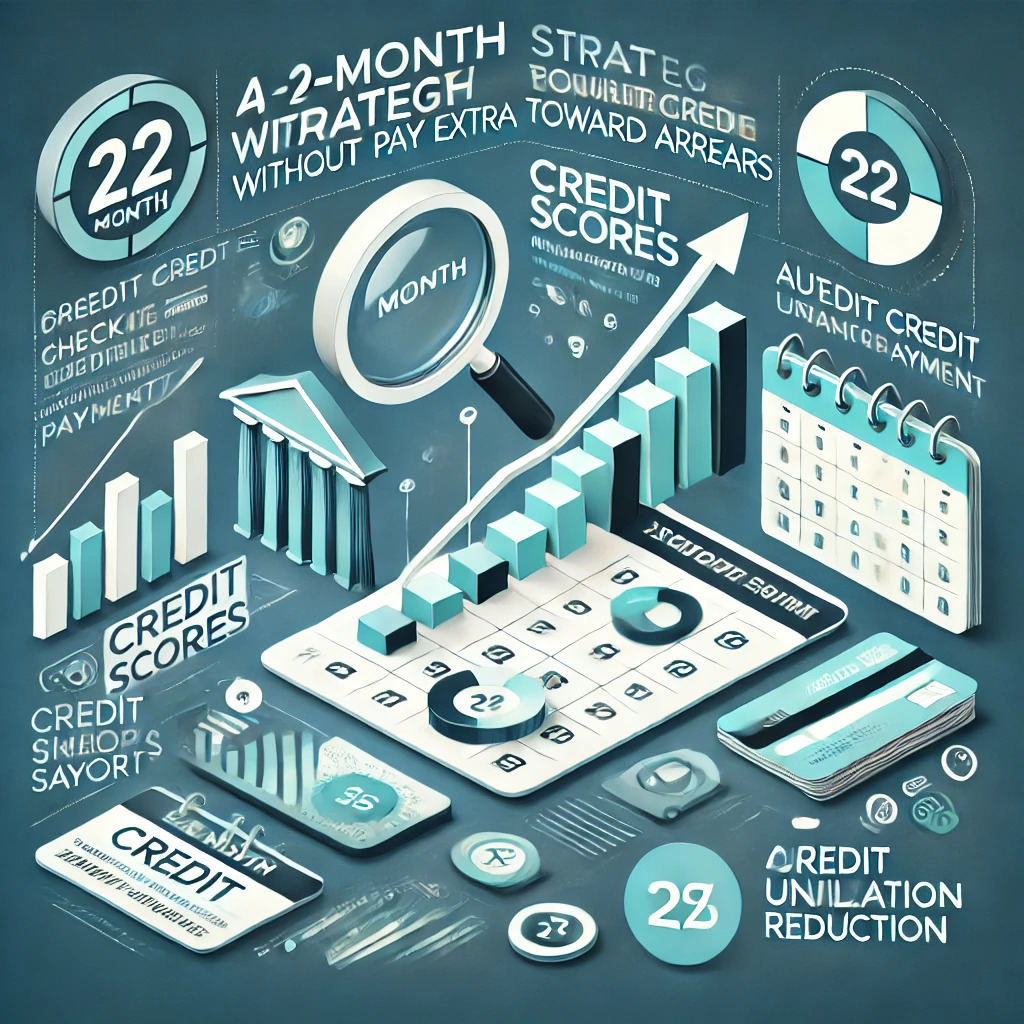How to Take a Different Step Every Month to Boost Your Credit Score Without Paying More Toward Arrea

Introduction
Improving your credit score is a smart financial goal, and while paying down arrears is a great way to see results, there are many other strategies you can employ to enhance your credit score without shelling out extra cash toward debts. Here is a month-by-month guide to help you take actionable steps toward better credit health without breaking the bank:
Month 1: Check Your Credit Report for Errors
Start by obtaining a free copy of your credit report from one of the three major credit bureaus: Equifax, Experian, or TransUnion. Scrutinize the report for inaccuracies, such as accounts you don’t recognize, incorrect balances, or late payments that you know you’ve made on time. Disputing errors and getting them corrected can instantly improve your credit score.
Month 2: Set Up Automatic Bill Payments
Payment history accounts for 35% of your credit score. Late or missed bill payments can cause a significant decline in your credit score.To avoid this, set up automatic payments for all your bills, including utilities and credit cards. This ensures timely payments every month and builds a positive payment history.
Month 3: Reduce Your Credit Utilization
Your credit utilization ratio (the amount of credit you’re using compared to your credit limit) is another key factor in your score. Aim to keep it below 30%. You don’t need to pay more toward your balance; instead, you can request a credit limit increase from your card issuer. If granted, your utilization ratio decreases without you spending an extra dime.
Month 4: Become an Authorized User
Reach out to a reliable family member or friend with a strong credit history and request to be added as an authorized user on their credit card. Their solid payment track record can benefit your credit report and give your score a helpful boost. Make sure the card issuer reports authorized user activity to the credit bureaus.
Month 5: Diversify Your Credit Mix
Your credit score benefits from having a mix of credit types, such as credit cards, installment loans, and retail accounts. If you lack diversity, consider opening a secured credit card or a small credit-builder loan. These options can add variety to your credit profile without requiring a large financial commitment.
Month 6: Keep Old Accounts Open
The length of time your credit accounts have been open plays an important role in determining your credit score. If you’re tempted to close old credit cards you no longer use, think twice. Keeping those accounts open—especially ones with no annual fees—can help lengthen your credit history and improve your score.
Month 7: Monitor Your Credit Regularly
Sign up for a free credit monitoring service to track changes in your credit score and identify potential issues, such as identity theft or unauthorized inquiries. Staying informed allows you to act quickly if something looks suspicious.
Month 8: Limit New Credit Applications
When you apply for new credit, a hard inquiry appears on your credit report, potentially causing a short-term decrease in your score. Avoid unnecessary applications and focus on maintaining your existing accounts.
Month 9: Negotiate with Creditors
If you have accounts in collections, reach out to the creditor and negotiate a pay-for-delete agreement. While this step may involve some payment, it doesn’t necessarily mean paying off the entire balance. Even partial settlements can sometimes result in the removal of negative marks.
Month 10: Leverage Rent and Utility Payments
Many landlords and utility companies don’t report payments to credit bureaus, but services like Experian Boost and RentTrack allow you to add these payments to your credit report. If you’ve been consistently paying rent or utilities on time, this step can give your score a noticeable lift.
Month 11: Use Your Credit Cards Strategically
Instead of avoiding credit card use altogether, make small, manageable purchases and pay them off in full each month. This demonstrates responsible credit usage and helps build a positive credit history over time.
Month 12: Educate Yourself on Credit Scoring
Spend this month diving deeper into the factors that influence your credit score. Understanding how payment history, credit utilization, account age, and credit mix work together will help you make smarter financial decisions going forward.
Final Thoughts
Improving your credit score doesn’t always require drastic measures or additional payments toward debt. By taking these deliberate steps each month, you can gradually strengthen your credit profile and set yourself up for long-term financial success. With consistency and a proactive approach, better credit is well within your reach!
Read The article - How to Start Getting More of a Return from Your Savings Accounts